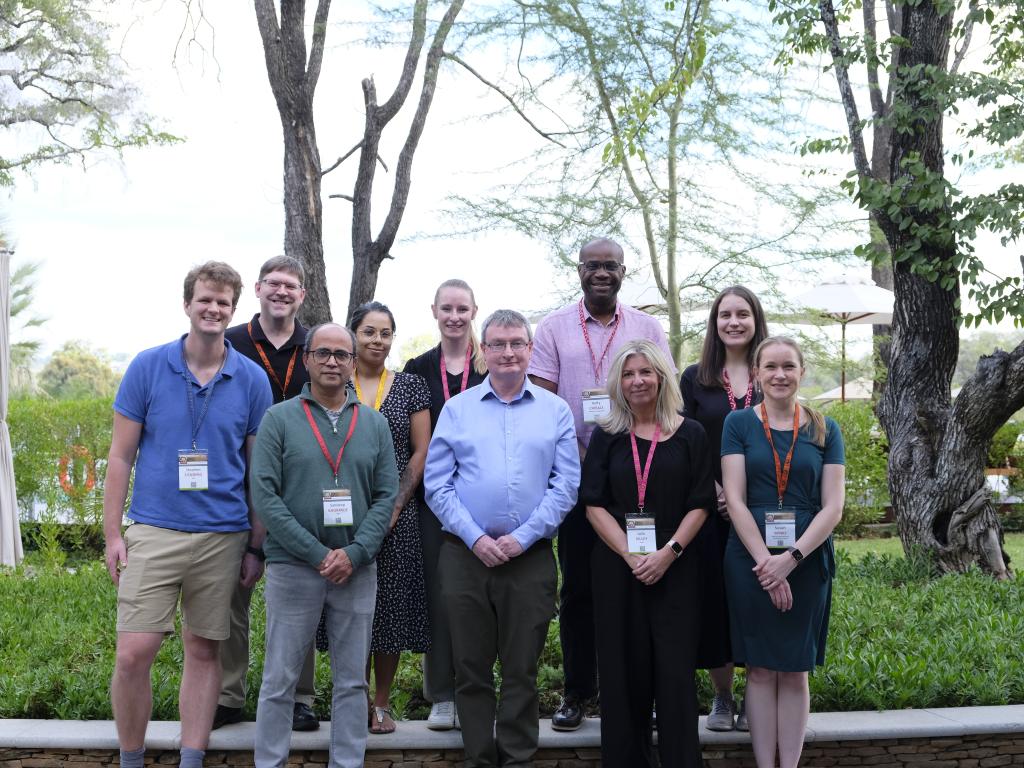LifeArc Makes Multi-Million Pound Investment in collaboration with the University of Cape Town to establish a Centre for Translational AMR Research (CTAR) at H3D

November 14th, 2024 – LifeArc, a self-funded medical research charity, has announced a significant GBP5 million investment to co-establish the new Centre for Translational AMR Research (CTAR) Programme at the University of Cape Town’s (UCT) Holistic Drug Discovery and Development (H3D) Centre. This strategic partnership aims to address the urgent global health threat posed by antimicrobial resistance (AMR).
Recent studies show that 1.91 million people are currently dying as a direct result of AMR, and failure to address the problem could result in 39 million deaths between 2025 and 2050 - equivalent to three people every minute. It is also estimated that AMR will reduce in gross domestic product (GDP) by $1-3.4 trillion USD per year by 2030. The burden of AMR is highest in low-and middle- income countries (LMICs) and strategic actions, including better surveillance and stewardship are required to address the problem. The discovery of new antibiotics that can overcome clinical drug resistance is a critical component of the strategy to tackle this “silent pandemic.” This is of extraordinary importance for the African continent, as the incidence and prevalence of resistance are widespread .
One of the greatest concerns for AMR includes carbapenem (an antibiotic used to treat severe multi-drug-resistant bacterial infections) and colistin-resistant gram-negative organisms (bacteria that are resistant to the antibiotic colistin). This poses a significant clinical challenge, especially in the context of hospital-acquired infections. In this regard Acinetobacter baumannii is among the pathogens of concern. This pathogen is responsible for a number of severe infections in people with weakened immune systems. In many LMICs, 80–90% of these bacteria are resistant to common treatments. It has, therefore, been listed by both the Centres for Disease Control (CDC) and the World Health Organisation (WHO) as a “critical priority pathogen.”
The CTAR Programme is a groundbreaking collaboration between UCT's H3D Centre and LifeArc, aimed at identifying and developing first-in-class therapeutics for infections caused by multidrug-resistant (MDR) Gram-negative bacteria, including Acinetobacter baumannii. This partnership not only targets the development of new antibiotics but also focuses on strengthening local research capacity in Africa. The collaboration will enhance H3D's research capabilities to facilitate efficient AMR drug discovery, which will be achieved through secondments of experienced scientists from LifeArc to UCT, and scientific research visits of H3D scientists to LifeArc to gain exposure to new technologies and techniques available through LifeArc.
LifeArc and H3D are both dedicated to discovering new treatments to combat the AMR pandemic, benefiting both African and global populations. The CTAR Programme will leverage the unique capabilities and respective strengths of both organisations; paving the way for groundbreaking advancements in the fight against drug-resistant bacteria and fostering a healthier future for both African and global populations.
Kelly Chibale, Director of H3D: "We are thrilled to partner with LifeArc in this crucial endeavour. This partnership with LifeArc underscores the importance of international collaborations in tackling pressing global health issues such as AMR, and this investment will significantly boost our efforts to develop new treatments for drug-resistant infections. Together, we are poised to make a meaningful impact on global health."
Julie Brady, Interim Head of Global Health at LifeArc: "Antimicrobial resistance is a growing global crisis that requires innovative solutions and a global approach. Our collaboration with H3D at the University of Cape Town aligns with LifeArc's mission to advance early-stage research into life-changing medical treatments. We are proud to work with H3D in their pioneering work to address this critical health threat and to support capacity growth in Africa."
About LifeArc
LifeArc is a self-funded, not-for-profit medical research charity. We take scientific ideas out of the lab and help turn them into medical breakthroughs that can be life-changing for patients. We have been doing this for more than 25 years and our work has resulted in five licensed medicines, including cancer drug pembrolizumab (Keytruda®), lecanemab for Alzheimer’s (Leqembi), and Carbaplex (Bruker) for diagnosing antibiotic resistance.
Our teams are experts in drug and diagnostics discovery, technology transfer, and intellectual property. Our work is in translational science – bridging the gap between academic research and clinical development, providing funding, research and expert knowledge, all with a clear and unwavering commitment to having a positive impact on patient lives. LifeArc is committed to investing £1.3 billion by 2030 in areas of high unmet medical need.
LifeArc is a company limited by guarantee (registered in England and Wales under no. 2698321) and a charity (registered in England and Wales under no. 1015243 and in Scotland under no. SC037861).
Find out more about our work on www.lifearc.org or follow us on LinkedIn or X.
About H3D Centre
H3D is Africa’s first integrated drug discovery and development centre. The Centre was founded at the University of Cape Town in 2010 and pioneers world-class drug discovery in Africa with the aim to translate scientific discoveries into potentially life-saving medicines in areas such as tuberculosis, malaria, and anti-microbial resistance.
For more information, please visit: www.h3d.uct.ac.za or follow us on LinkedIn or X.
